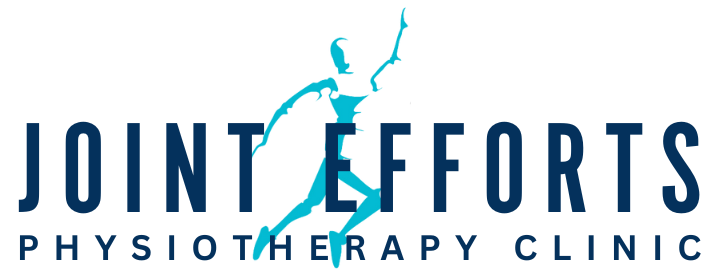Home Visit in Noida

Reliable Home Visit Physiotherapy at Joint Efforts
Joint efforts Physiotherapy Clinic offers home visit solutions, also known as in-home physiotherapy, is a convenient and effective way to receive physiotherapy treatment at comfort of your own surroundings. A qualified physiotherapist travels at your place and provides a personalized treatment to provide your specific needs. Physical therapy improves quality of life and function by improving ability and mobility. During physiotherapy, the patient undergoes several examinations, diagnoses, assessments and prevention. Physiotherapists are professionals who use their proper knowledge and specialized clinical experience for treatment. If you are from Noida, get the best physiotherapy today from joint efforts
Benefits of Physiotherapy at Home:
-
Convenience: Home Visit physiotherapy allows you to receive treatment at your own pace and schedule, eliminating the need for travel and clinic visits.
Comfort: Familiar surroundings can be more relaxing and conducive to healing, especially for those who find clinic visits stressful. Home Visit sessions offer this advantage.
Personalized Attention: The physiotherapist can assess your home environment and tailor exercises to utilize furniture or equipment you already have, enhancing the effectiveness of the Home Visit treatment.
Increased Accessibility: This option is ideal for individuals who have difficulty traveling to a clinic due to illness, injury, disability, or limited mobility, making Home Visit physiotherapy a practical solution.
Family Involvement: Family members can be present during the sessions, allowing the physiotherapist to educate them on how to assist with your recovery, fostering a supportive environment during Home Visit physiotherapy.
Conditions Treated with Physiotherapy at Home:
Physiotherapy at home can be beneficial for a wide range of conditions, including:
- Post-operative rehabilitation: Helping you regain strength, mobility, and function after surgery.
- Musculoskeletal pain: Alleviating pain and stiffness caused by injuries, arthritis, or other conditions.
- Neurological conditions: Improving movement and function for individuals with stroke, Parkinson’s disease, or other neurological disorders.
- Sports injuries: Promoting healing and recovery from sports-related injuries.
- Balance and gait problems: Improving balance and coordination to prevent falls.
What to Expect During a Physiotherapy at Home Session:
- Initial Assessment: The physiotherapist will discuss your medical history, current condition, and goals for treatment.
- Treatment: This may involve manual therapy techniques, therapeutic exercises, education on self-care strategies, and recommendations for assistive devices.
- Home Exercise Program: The physiotherapist will develop a personalized exercise program that you can perform at home to continue your progress between sessions.
While physiotherapy massage itself doesn’t involve exercises you perform during the session, it’s often complemented by a personalized exercise program prescribed by your physiotherapist at Joint Efforts Clinic. Here’s how to integrate this information into your service article:
Importance of Exercise:
Improve circulation. However, for truly unlocking the long term mobility and pain management, physiotherapy massage is often suggested with a personalized exercise program designed by your physiotherapist at Joint Efforts Clinic.
Focus on Post-Massage Exercises:
The exercises come after the massage session, when your muscles are warmed up and receptive to movement improvement. Explain this by saying:
Following your physiotherapy massage, your physiotherapist will design a program of targeted exercises specific to your needs. These exercises may include:
Provide Examples of Exercises:
List a few examples of exercises commonly prescribed after physiotherapy massage, keeping them general for a wider audience:
- Stretching exercises: Improve flexibility and range of motion at the treated area, further increases the benefits of massage.
- Strengthening exercises:Target muscles that support the joint or area that received massage, promotes stability and prevents future injuries.
- Balance exercises:Can be particularly helpful after massage for injuries affecting balance or coordination.
Emphasize Individualized Programs:
Stress that the exercise program is not one-size-fits-all:
“It’s important to note that these are just examples, and your personalized program will be tailored to your specific condition and goals. Your physiotherapist will provide clear instructions on proper form and technique to ensure you perform the exercises safely and effectively.”
Benefits of Exercise after Massage:
Briefly mention how these exercises complement the massage:
“By incorporating these exercises into your routine, you’ll not only maintain the benefits of the massage but also actively work towards long-term pain management, improved mobility, and a stronger, more resilient body.”
By including this section, you provide a more holistic view of the physiotherapy massage service at Joint Efforts Clinic, highlighting the importance of both massage and exercise in achieving optimal results.
Who Needs Physiotherapy?
Physiotherapy is not only for athletes recovering from injuries. It’s a powerful tool for people of all ages group and activity levels who are experiencing pain, stiffness, or limitations in their movement. At Joint Efforts Physiotherapy, we’re dedicated to helping you regain control and live an active, pain-free life. Here’s a look at some of the most common reasons why people seek physiotherapy:
1. Pain Management:
- Musculoskeletal pain:This is the most common reason people go for physiotherapy. It around pain in muscles, joints, tendons, ligaments, and bones. Examples include back pain, neck pain, knee pain, shoulder pain, and headaches.
- Arthritis pain:Physiotherapy can help manage pain and improve mobility in individuals with various forms of arthritis, like osteoarthritis and rheumatoid arthritis.
- Post-surgical pain:Recovering from surgery often involves stiffness and pain. Physiotherapy helps restore movement, reduce pain, and improve scar tissue mobility.
- Sports injuries:Whether you’re a weekend warrior or a competitive athlete, physiotherapy can help you heal from sports injuries and prevent future ones.
2. Rehabilitation:
- Post-injury rehabilitation:Physiotherapy plays a crucial role in recovering from injuries like sprains, strains, fractures, and dislocations. It helps restore strength, flexibility, and function to the affected area.
- Post-operative rehabilitation:As mentioned earlier, physiotherapy is essential after surgery to regain movement and manage pain. It helps prevent complications like scar tissue formation and muscle atrophy.
- Neurological conditions:Physiotherapy can be highly beneficial for individuals with neurological conditions like stroke, Parkinson’s disease, and multiple sclerosis. It helps improve balance, coordination, and movement.
3. Improving Mobility and Function:
- Balance and coordination issues:Physiotherapy exercises can improve balance and coordination, reducing the risk of falls, especially in older adults.
- Stiffness and limited range of motion:Whether due to injury, inactivity, or certain conditions, physiotherapy can help restore flexibility and improve your range of motion.
- Posture problems:Poor posture can contribute to pain and discomfort. Physiotherapy can help you develop proper body mechanics and improve your posture.
4. Sports Performance Enhancement:
- Injury prevention:Physiotherapists can assess your movement patterns and identify weaknesses that could lead to injuries. They can then design a program to improve your strength, flexibility, and balance, reducing your risk of getting hurt.
- Performance optimization:Physiotherapy can help athletes improve their performance by enhancing flexibility, strength, and coordination. It can also help with injury recovery and return-to-play strategies.
5. Pre and Postnatal Care:
- Prenatal physiotherapy:Physiotherapy can help manage pregnancy-related pain, improve posture, and prepare your body for childbirth.
- Postnatal physiotherapy: Physiotherapy can help you recover from childbirth, address issues like diastasis recti (abdominal separation), and regain core strength.
Finding a Physiotherapist for In-Home Care.
Reach out to Joint Efforts for expert home visit physiotherapy services.
-
Specialization: Look for physiotherapists who specialize in home visit care and have experience treating your specific condition.
-
Qualifications: Check qualifications and certifications to ensure you’re working with a qualified professional.
-
Convenience: At Home physiotherapy offers a valuable alternative to traditional clinic-based treatment.
-
Accessibility: If you’re looking for a convenient and effective way to manage your condition and improve your mobility, home visit physiotherapy by Joint Efforts might be the perfect solution for you.
Physiotherapy at home offers a valuable alternative to traditional clinic-based treatment. If you’re looking for a convenient and effective way to manage your condition and improve your mobility, physiotherapy at home by joint efforts might be the perfect solution for you.


